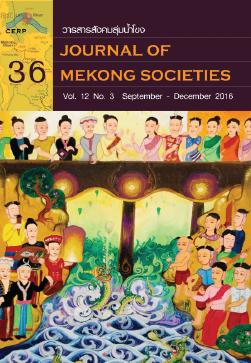Genealogical Discourse within the Transition of the Mekong River Commission: Development of Underdevelopment and Developing Alternative Sustainable Livelihoods
Main Article Content
Abstract
This article describes the development discourse related to the Mekong River Commission (MRC) as an intergovernmental organization for the development of the Mekong region by using genealogy to analyze the development context. It traces the discourse explaining the establishment, role and impact of development driven by the Mekong River Commission in every significant transition under international political circumstances involved in the cooperation of all countries in the sub-region. Included are the geo-strategic context under the development agenda of flood control in Third World countries and the development of power supply from the Mekong River to drive economic and industrial development in the context of regionalism. Legal principles of international watercourses and the concept of sustainable development have become major monitoring issues because of the river’s vulnerable condition and the conflict that has resulted as consequences of development. Moreover, political and national interests are stressed as key policies of each country. The political in consensus based decision making (CBDM) became an obstacle, which led to the proposal of alternative sustainable development by a balance of power through the process of negotiation and discourse on regional water development, involving the civil section and entrepreneurs of transnational policies in order to integrate water resource management.


